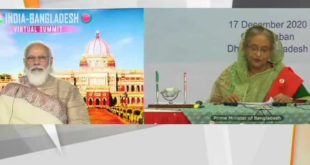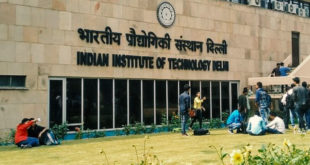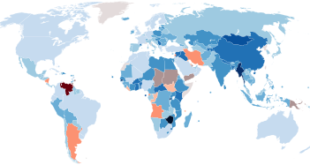CONTEXT:
Ranjitsinh Disale, a primary teacher from Maharashtra’s Solapur, has won the Global Teacher Prize 2020.
GLOBAL TEACHER PRIZE:
- It is a 1 million dollar award presented annually to an exceptional teacher who has made an outstanding contribution to their profession.
- Varkey Foundation, which is a global charitable foundation focused on improving the standards of education. The award is organised in partnership with UNESCO.
AIM:
- It serves to underline the importance of educators and the fact that, throughout the world, their efforts deserve to be recognised and celebrated.
- It seeks to acknowledge the impacts of the very best teachers not only on their students but on the communities around them.
- An inadequate education is a major factor behind the social, political, economic and health issues faced by the world today. Education has the power to reduce poverty, prejudice and conflict.
CONTRIBUTION RANJITSINH DISALE:
- He changed a dilapidated school to a school which went on to become the first in Maharashtra to introduce Quick Response (QR) Codes.
- A QR code is a type of barcode that contains a matrix of dots. It can be scanned using a QR scanner or a smartphone with a built-in camera.
- He not only translated the class textbooks into his pupils’ mother tongue, but also embedded them with unique QR codes to give students access to audio poems, video lectures, stories and assignments.
- He is also passionate about building peace between young people across conflict zones. His ‘Let’s Cross the Borders’ project connects young people from India and Pakistan, Palestine and Israel, Iraq and Iran and the USA and North Korea.
SOME IMPORTANT INITATIVES:
1. National education policy 2020:
The teacher must be at the centre of the fundamental reforms in the education system. The new education policy must help recruit the very best and brightest to enter the teaching profession at all levels, by ensuring livelihood, respect, dignity, and autonomy, while also instilling in the system basic methods of quality control and accountability.
2. Revitalising Infrastructure and Systems in Education (RISE) by 2022:
Focuses on qualitatively upgrading the research and academic infrastructure in India to global best standards by 2022. Its aim is to make India into an education hub by making available high-quality research infrastructure in Indian higher educational institutions.
3. UGC’s Learning Outcome-based Curriculum Framework (LOCF)
LOCF guidelines, issued by UGC in 2018, aim to specify what graduates are expected to know, understand and be able to do at the end of their programme of study. This is to make students an active learner and teacher a good facilitator.
4. Global Initiative for Academics Network (GIAN): The programme seeks to invite distinguished academicians, entrepreneurs, scientists, experts from premier institutions from across the world, to teach in the higher educational institutions in India.
5. All India Survey on Higher Education (AISHE): The main objectives of the survey are to identify & capture all the institutions of higher learning in the country; and collect the data from all the higher education institutions on various aspects of higher education.
6. e-Pathshala: It was launched in 2015 with an aim to promote self-learning among the school students. The portal hosts various school teachers, researchers, experts, parents, and most importantly students who can access the facility of resolving their queries.
SOURCE: PIB
 Chinmaya IAS Academy – Current Affairs Chinmaya IAS Academy – Current Affairs
Chinmaya IAS Academy – Current Affairs Chinmaya IAS Academy – Current Affairs



